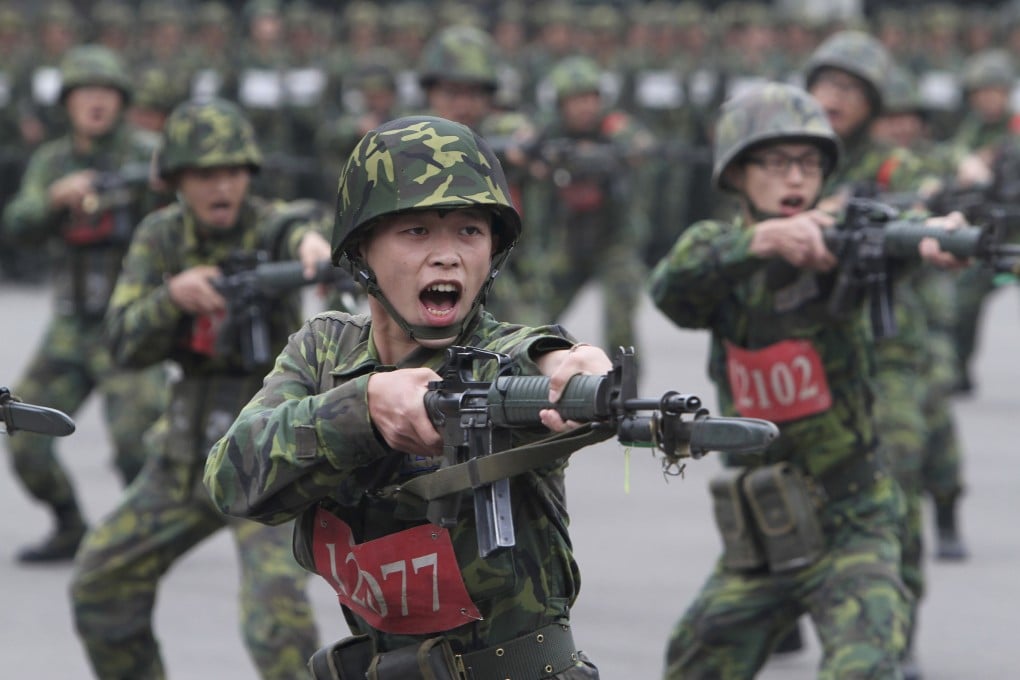Advertisement
Taiwan’s plan for 1-year compulsory military service includes teaching young conscripts to fire missiles
- Leaving traditional bayonet drill training behind, Taiwanese recruits will learn to fire powerful weapons and modern close-quarters battle skills
- Analysts question whether the military has the teaching resources or training grounds to cope with the influx of conscripts in 2024
Reading Time:4 minutes
Why you can trust SCMP
7

Lawrence Chungin Taipei
Taiwanese conscripts will be trained to fire more powerful weapons, such as portable Stinger and Javelin missiles, from 2024 as part of their one-year compulsory military training to enhance combat readiness in the event of a cross-strait conflict.
Instead of traditional bayonet drill training, recruits will be required to learn modern close-quarters battle skills to better tackle the potential enemy from Beijing, when Taiwan resumes its year-long military service in just over a year.
Before 1987, the island required local conscripts to serve three years but it was cut to two years in 1990 and then reduced to one in 2008.
Advertisement
The length of service was gradually reduced before dropping to four months in 2013. Conscripts also have the option to choose alternative military service, such as administrative jobs in government agencies or working for international cooperation programmes.
Threats from Beijing, ‘persuasion’ from US
Facing a growing military threat from Beijing, and repeated “persuasion” from the United States – an informal ally and major supplier of arms to Taiwan – the island’s authorities have been impelled since 2020 to discuss a structural revamp of its forces.
Advertisement
Advertisement
Select Voice
Select Speed
1.00x
